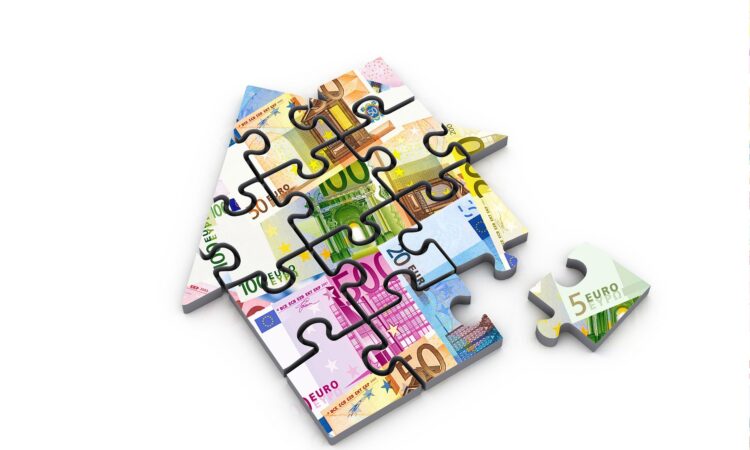
While re-mortgaging and releasing equity is possible in France, it is not as easy as in the UK and other countries, and can be costly. For most French buyers, a mortgage is a one-time deal. That’s why it is essential to choose the right type of French mortgage at the time of your property purchase.
It’s important that you fully understand the details of the loan agreement, too. Many French mortgages are favourable for foreign buyers, but some conditions may be different from what you are used to in your country of residence.
Interest-Only Mortgages
Interest-only mortgages are a popular and cost-effective option, especially for buy-to-let and investments properties. However, while this is an option in France, they are only approved in rare situations, especially for foreign buyers.
Full-term interest-only mortgages are even rarer. Where they are available, potential borrowers will invariably be asked to prove that they have other property and financial assets to the value of 120% or 150% of the loan amount.
Instead, most lenders are only willing to offer interest-only financing over an initial phase of the overall term, before the facility reverts to capital and interest repayment. To take a 20-year mortgage as an example, this could mean two years of interest-only followed by 18 years of repayment, or it could mean a more even split of 10 years each.
Read the article Are Interest-Only Mortgages Available in France?
Repayment Mortgages
The vast majority of French mortgages are traditional, fixed-term repayment loans. These generally benefit from lower rates and can be arranged over a term of anything from 6 years up to 30 years.
The market offers three types of repayment mortgages: variable rate, fixed-rate and capped rate.
Variable-Rate Mortgages
Variable-rate repayment mortgages are typically tied to one of the EURIBOR base rates – this is the ‘European Inter Bank Offered Rate’ and is the Eurozone’s equivalent to the LIBOR. The rate which applies to your variable mortgage will therefore depend on movements in the EURIBOR index.
It is important to note that a rate rise may not necessarily result in your monthly instalments increasing, as you may be used to with other foreign mortgages. It is more common in France that the monthly payments remain the same, but the overall term of your mortgage will be lengthened or shortened accordingly. In cases where interest rates drop, you may benefit by paying off your mortgage earlier than expected; in cases where interest rates rise, you may find yourself taking longer than hoped to pay off your mortgage.
One notable advantage of this kind of mortgage for foreign borrowers is that they tend not to penalise overpayments. Providing you are making a lump sum that is over 10% of the loan amount, most banks are happy to accept capital payments and allow you to end the mortgage before the agreed term. This can be tempting for foreign buyers and investors, allowing you to pay off your mortgage when exchange rates are most beneficial.
Fixed-Rate Mortgages
The most popular repayment mortgages on the French market have rates that are fixed for the duration of the term. Foreign borrowers may be pleasantly surprised to see how low these rates can be, given the level of financial security that they guarantee.
This kind of mortgage means minimum risk from a financial point of view, as you can be certain of your monthly outgoings and term length. Although interest rates are typically slightly higher than variable-rate mortgages, they are still often low compared with foreign mortgage rates.
However, some fixed-rate mortgages do impose penalties for overpayments or redeeming credit within the fixed-rate term. If you are likely to want to make one-off lump sum payments on your mortgage or pay off your mortgage before the end of the term, it’s important to understand if and when these penalties apply.
As in other countries, there are also fixed-rate mortgages available which secure the rate for a first term only (typically between 2 to 5 years), after which the mortgage becomes variable.
Capped-Rate Mortgages
The most recent introduction to the French non-resident mortgage market has been that of the capped rate. In essence, this facility works in the same way as a variable rate. The bank, however, will set an upper limit on the rate which applies during part or all of the mortgage term.
This option provides a certain level of security for those who are concerned about rising base rates, while at the same time generally allows for penalty-free overpayments. In these times of financial uncertainty, it has proved to be a very popular choice among non-resident buyers.
While these are by far the most common and available mortgages in France, there are some other options available, particularly if you choose to go through a mortgage broker.
Read our article French Mortgage Types: Fixed-rate, Variable, and more






